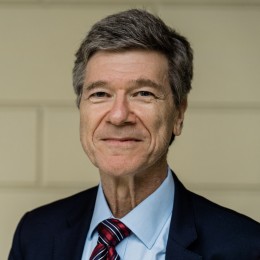Sustainable Development
Discover the fundamental factors that determine sustainable development through an interdisciplinary approach, examining the complex interactions between the world economy and the Earth's physical environment using recent developments in social, policy, and physical sciences.
Modules/Weeks
Weekly Effort
School
Format
Cost
Course Description
- This course offers an interdisciplinary introduction to sustainable development, informed by the latest developments in social, policy, and physical sciences.
- It explores the complex interplay between the global economy and the Earth's physical environment, and delves into challenges of environmental sustainability and social inclusion.
- The principles of sustainable development are reviewed with a focus on measuring social and economic welfare at different scales—national, regional, and community.
- This course investigates both traditional and alternative indicators of sustainable development, encompassing social, economic, and environmental aspects of human well-being.
What You Will Learn
By the end of this course, learners will be able to:
Demonstrate a comprehensive understanding of sustainable development, its origins, and prerequisites, enabling them to critically evaluate current measures of economic growth.
Analyze alternative indicators of sustainable development, recognizing their advantages and challenges in implementation.
Gain insights into the causes of economic disparity between developed and developing nations, and identify key factors for achieving economic convergence.
Apply clinical economics principles to specific geographic contexts, assess the social, environmental, and economic realities, and formulate policy recommendations based on their sustainable development knowledge.
Course Outline
Module 1: An Introduction to Sustainable Development
Module 2: An Unequal World
Module 3: Why Did Some Countries Advance While Others Stayed Poor?
Module 4: Ending Extreme Poverty
Module 5: Growth within Planetary Boundaries
Module 6: Human Rights and Gender Equality
Module 7: Education
Module 8: Food Security
Module 9: Resilient Cities
Module 10: Curbing Climate Change
Module 11: Saving Biodiversity and Protecting Ecosystem Services
Module 12: Sustainable Development Goals
Instructors

Jeffrey D. Sachs, a renowned economics professor, bestselling author, and global leader in sustainable development, is celebrated for his bold and effective strategies in addressing complex challenges. His expertise spans diverse areas such as debt crises, disease control, poverty eradication, and climate change mitigation.
Sachs currently directs Columbia University's Center for Sustainable Development as a University Professor, holding the highest academic rank. He previously served as the Director of the Earth Institute at Columbia University and has held influential positions including President of the UN Sustainable Development Solutions Network and commissioner of the UN Broadband Commission for Development. Additionally, he has been an SDG Advocate for UN Secretary General Antonio Guterres and served as a Special Advisor to three UN Secretaries-General.
With a string of influential books to his name, including The End of Poverty, Common Wealth, and The Price of Civilization, Sachs has garnered recognition and acclaim. He was honored as the co-recipient of the 2015 Blue Planet Prize and has been named among Time magazine's 100 most influential world leaders. Sachs's impact as an economist is widely acknowledged, with The New York Times describing him as "probably the most important economist in the world," and Time magazine dubbing him "the world's best-known economist." A survey by The Economist ranked him among the top three most influential living economists.
Prior to his role at Columbia, Sachs held a prominent professorship at Harvard University. Born in Detroit, Michigan, he earned his B.A., M.A., and Ph.D. degrees from Harvard, establishing a strong foundation for his illustrious career in economics.
Please note that there are no instructors or course assistants actively monitoring this course.
